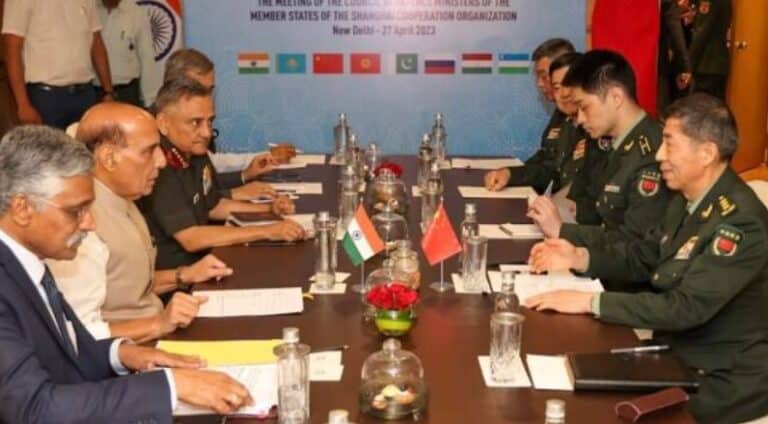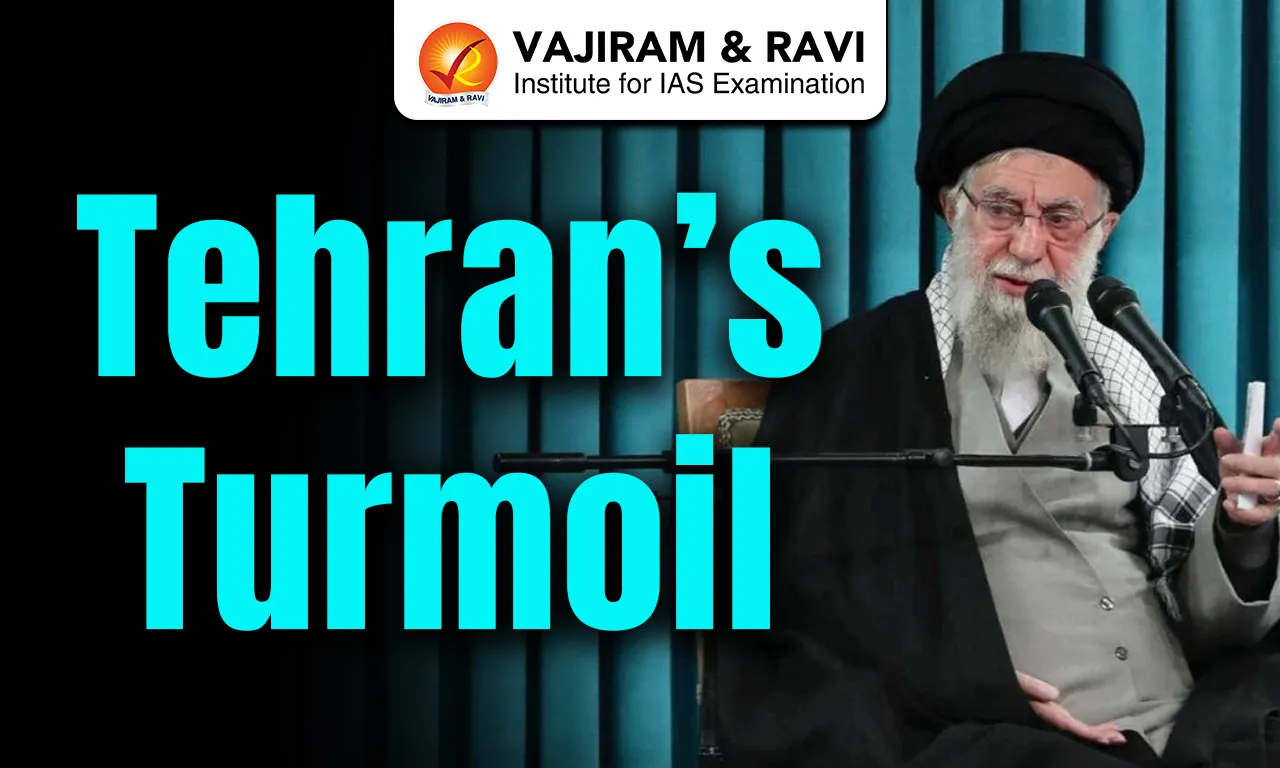What’s in today’s article?
- Why in news?
- Border agreements with India that were violated by China
- News Summary: India-China Defence Ministers’ Meet
- Indian stand during the meeting
Why in news?
- Recently, Defence Minister Rajnath Singh held discussions with China’s Defence Minister General Li Shangfu.
- China’s Defence Minister is in New Delhi to attend the Shanghai Cooperation Organisation (SCO) Defence Ministers conference.
- This is the first visit by a Chinese defence minister to India after the eastern Ladakh border standoff began in May 2020.
- Indian Defence Minister told his visiting Chinese counterpart that Beijing’s violation of existing agreements has eroded the entire basis of bilateral relations.
Border agreements with India that were violated by China
- About
- China through its military action at Galwan in Ladakh violated three key bilateral agreements — 1993, 1996 and 2013.
- These agreements have been central to maintaining peace and tranquillity on the disputed Line of Actual Control.
- Until the Galwan clash in 2020, not a single soldier had been killed on either side of the LAC for over four decades.
- The 1993 agreement between India and China
- It declared: Neither side shall use or threaten to use force against the other by any means No activities of either side shall overstep the line of actual control.
- It also stated, in case personnel of one side cross the line of actual control, upon being cautioned by the other side, they shall immediately pull back to their own side of the line of actual control.
- China has not done that either in Galwan or Pangong Tso.
- On the contrary, it has built structures and stationed its troops in a face-off like situation despite cautionary warnings.
- 1996 agreement on border disputes and maintenance of peace
- As per article VI of the Agreement, the two countries are not to open fire within two kilometers from the line of actual control.
- This had been stipulated to prevent dangerous military activities and does not apply to routine firing activities in small arms firing ranges.
- This is what led to a practice, where troops on both sides, never brandished weapons at each other and at most.
- They often indulged in a physical jostle.
- It was this agreement of 1996 which also set the rules on military exercises.
- It makes clear that the strategic direction of the main force in an exercise shall not be towards the other side.
- The Chinese PLA carried out its summer exercises opposite Ladakh which clearly were aimed at threatening India.
- The 2013 India-China Border Defence Cooperation Agreement
- Through this agreement, the two sides agree that they shall not follow or tail patrols of the other side in areas where there is no common understanding of the Line of Actual Control (LAC).
- Here again, the violence in Galwan raises doubts whether Chinese troops followed this protocol.
- Chinese manoeuvres of the past two weeks have had the Indian side quite worried on this count.
News Summary: India-China Defence Ministers’ Meet
Indian stand during the meeting
- All issues at the LAC need to be resolved in accordance with existing bilateral agreements and commitments.
- Indian Minister conveyed that after disengagement at the LAC, there should be movement towards de-escalation.
- India categorically conveyed that development of relations between India and China is premised on prevalence of peace and tranquillity at the borders.
Q1) What is Shanghai Cooperation Organization (SCO)?
SCO is an intergovernmental organization that was founded in 2001 by China, Russia, Kazakhstan, Kyrgyzstan, Tajikistan, and Uzbekistan. Its goals include promoting economic cooperation and regional security, as well as combatting terrorism, separatism, and extremism.
Q2) what is Confidence building measures between India and China?
Confidence-building measures (CBMs) between India and China are steps taken by the two countries to reduce tensions and build trust in their relationship. These measures are intended to prevent misunderstandings, avoid conflicts, and promote cooperation in areas of mutual interest.
Source: Violation of pacts eroded basis of bilateral ties: Rajnath to China | The Hindu | Business Standard | Economic Times
Last updated on March, 2026
→ UPSC Notification 2026 is now out on the official website at upsconline.nic.in.
→ UPSC IFoS Notification 2026 is now out on the official website at upsconline.nic.in.
→ UPSC Calendar 2026 has been released.
→ UPSC Final Result 2025 is expected to be released soon.
→ Check out the latest UPSC Syllabus 2026 here.
→ Join Vajiram & Ravi’s Interview Guidance Programme for expert help to crack your final UPSC stage.
→ UPSC Mains Result 2025 is now out.
→ UPSC Prelims 2026 will be conducted on 24th May, 2026 & UPSC Mains 2026 will be conducted on 21st August 2026.
→ The UPSC Selection Process is of 3 stages-Prelims, Mains and Interview.
→ Prepare effectively with Vajiram & Ravi’s UPSC Prelims Test Series 2026 featuring full-length mock tests, detailed solutions, and performance analysis.
→ Enroll in Vajiram & Ravi’s UPSC Mains Test Series 2026 for structured answer writing practice, expert evaluation, and exam-oriented feedback.
→ Join Vajiram & Ravi’s Best UPSC Mentorship Program for personalized guidance, strategy planning, and one-to-one support from experienced mentors.
→ Check UPSC Marksheet 2024 Here.
→ UPSC Toppers List 2024 is released now. Shakti Dubey is UPSC AIR 1 2024 Topper.
→ Also check Best UPSC Coaching in India


















